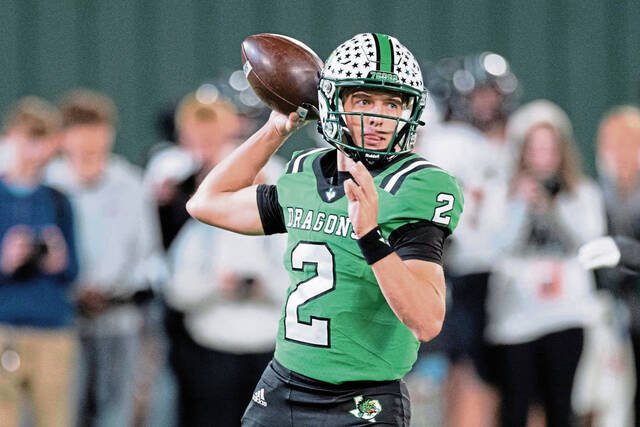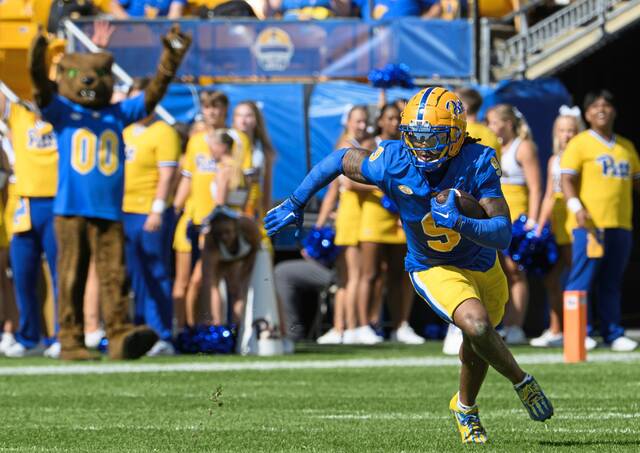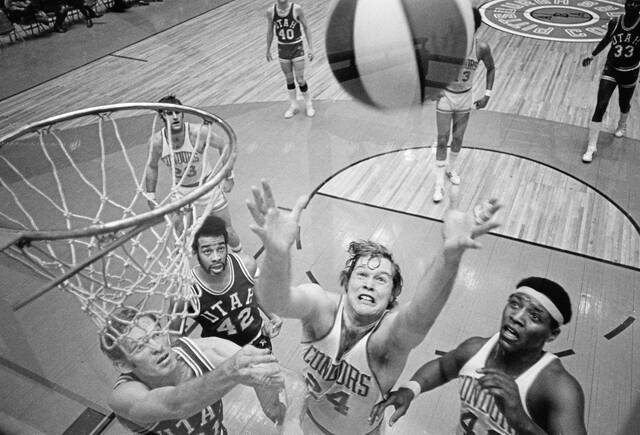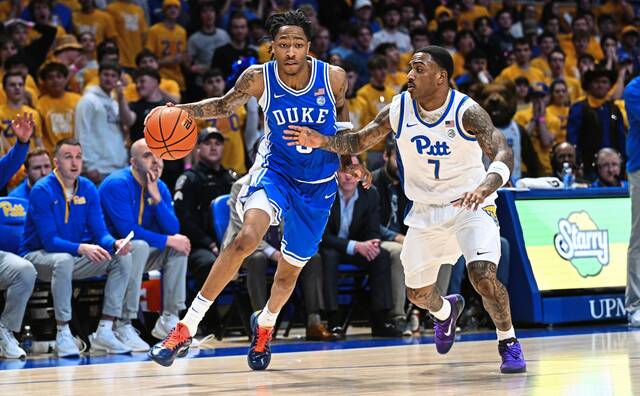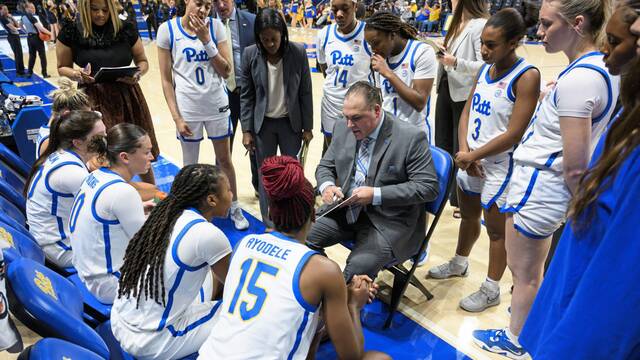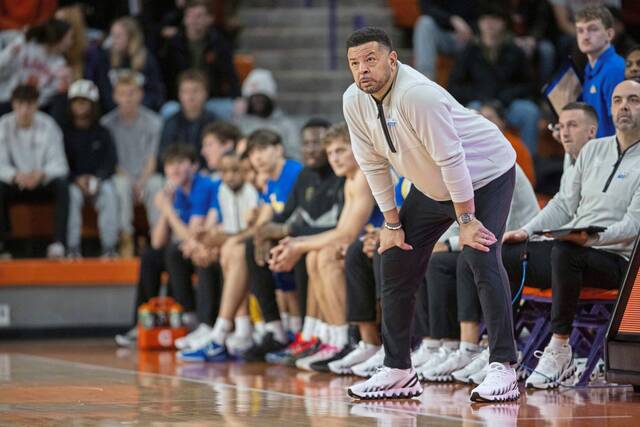When the NCAA Division I Board of Directors set up the first guardrails intended to regulate boosters emboldened by name, image and likeness legislation, Jordan Addison’s presence in the transfer portal was one of the tipping points, a sports attorney said Tuesday.
“I think the Jordan Addison situation clearly was one of the straws that was, ‘OK, enough is enough,’ ” said Peter Schoenthal, founder and CEO of Athliance, a firm that specializes in NIL management issues.
The NCAA set new guidelines that could add teeth to rules against boosters and NIL-focused companies contacting prospects — directly or indirectly — with the intent of luring them to a specific school.
A working group of athletic directors and conference commissioners, formed earlier this year, released the guidelines. Athletic directors Gene Smith and Rick George of Ohio State and Colorado, respectively, and Big 12 commissioner Bob Bowlsby are part of the committee.
The administrators’ concern stems from rules updated last year that allow college athletes to make money off their name, image and likeness.
Addison, an All-American who won the 2021 Biletnikoff Award as college football’s top wide receiver, appears to be leaving Pitt after entering the portal earlier this month. Speculation arose April 29 that Addison or a representative was in contact with USC before his name reached the portal, and his transfer might be connected to potential NIL deals.
While Addison is being recruited by schools seeking to add his speed and route-running skills, the NCAA is trying to prevent college sports from becoming what Schoenthal classified as the “Wild West.”
Contacted last week before the NCAA released its new rules Monday, Schoenthal said NIL guidelines need to be in place.
“Right now, the problem with the (college athletics) space is everyone’s afraid to get left behind,” he said. “So everyone’s acting like a bad actor, and the space has become the Wild West. It’s not what any of us envisioned. Right now, it’s not name, image and likeness.”
Schoenthal defined NIL as “using your marketability and your NIL to profit off of who you are as it pertains to marketing deals, autographs, memorabilia and the like.”
“Right now, the space has become, ‘How can we funnel money to student-athletes to get them to our school and keep them happy?’ And on the back end, we’ll find a way to justify the money.
“It leads to tampering. It’s leading to boosters individually interacting with recruits. It is what everyone fears the space would become, and it’s a shame because if we guardrail this the right way and enforce it the right way, NIL can be the best thing that ever happened to college sports.”
Contacted Tuesday morning, Schoenthal said the new guidelines announced Monday make “total sense.”
He said the announcement “codifies and, actually, defines what inducement means.”
“This closes off the pay-for-play and inducement loopholes and puts an onus on schools to regulate their own,” Schoenthal said. “Furthermore, I think these rules will be held up because they cross-section with other NCAA rules that are already in place for recruiting.
“There are already rules on the books that disallowed boosters from communicating and partaking in the recruitment of athletes. Now, that extends to name, image and likeness. And it requires universities to take a hands-on approach, to not turn a blind eye and intervene, if their boosters and collectives (NIL-focused companies) are doing the wrong thing, and self-report.”
The Board of Directors said the NCAA could pursue sanctions against those who committed violations since the advent of NIL 10 months ago while focusing on issues going forward.
Schoenthal said the situation escalated this year, especially after the most recent signing day.
“After national signing day, it became clear that boosters and collectives are coming into the space in order to induce athletes to sign with their school,” he said. “They were doing it openly and more brash than before, and it was happening at a much higher rate than before.
“We hear a lot about the bagmen and all that. I can promise you it was not as widespread, rampant, as crazy as it has been over the past six months.
“NIL muddied the water as to what you could and couldn’t do. That was why there was a need for the NCAA to come and say, ‘OK, we’ve heard a lot about what is inducement. Well, here is inducement, here are the penalties and here’s what we will do.’ “
But Schoenthal believes the NCAA’s work isn’t done.
“I think the other thing the NCAA needs to do going forward is make sure whatever rules are put forward that impact athletes that they have a seat at the table and their voices are heard,” he said.
On the subject of unionization of college athletes, he added, “I don’t think I would say inevitable, but it’s looking more and more likely.”



